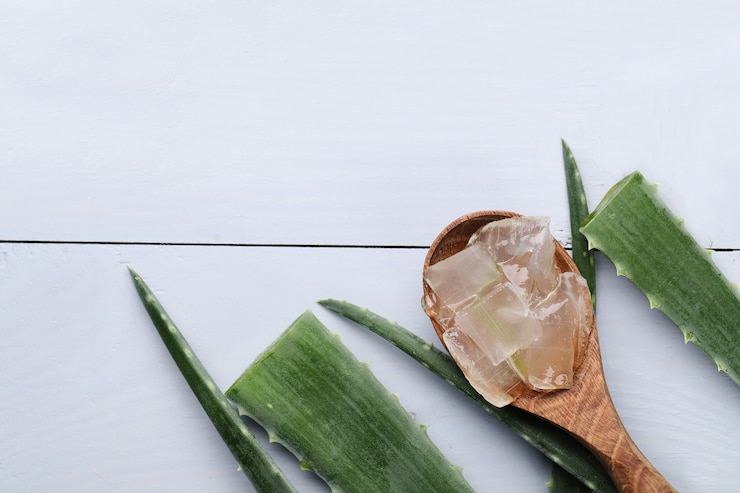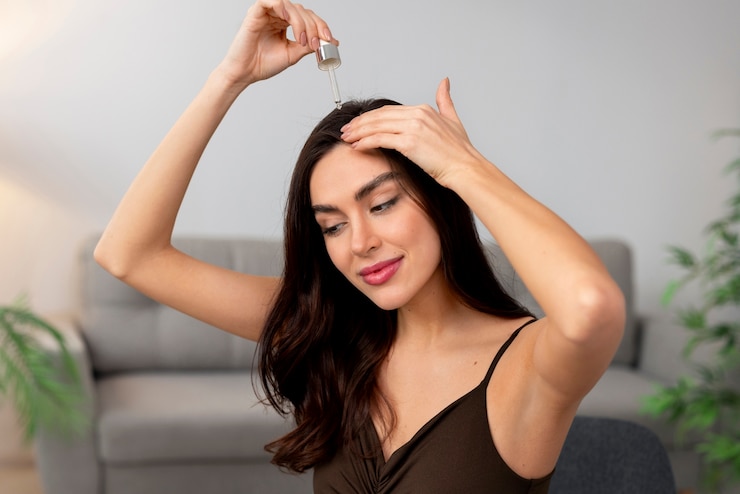Ask Ayurvedic doctor a question and get a consultation online on the problem of your concern in a free or paid mode. More than 2,000 experienced doctors work and wait for your questions on our site and help users to solve their health problems every day.
Ayurvedic Solutions for Dandruff

Key Takeaways
- Dandruff is a common scalp condition characterized by flakes and itchiness, impacting daily life.
- Ayurveda sees dandruff as an imbalance in the body's doshas, offering a unique perspective on its causes.
- Herbal remedies in Ayurveda provide natural and gentle relief for dandruff, utilizing time-tested ingredients.
- Ayurvedic scalp treatments aim to restore balance and promote a healthier scalp environment.
- A holistic approach, combining lifestyle changes with Ayurvedic practices, can improve dandruff management.
Dandruff can be a real nuisance, can't it? Those pesky white flakes on your shoulders are more than just an annoyance; they can make anyone feel self-conscious. But don't worry, understanding dandruff is the first step to tackling it. This article will explore the Ayurvedic approach to this common scalp issue. We'll delve into why dandruff occurs and how Ayurveda offers natural solutions through herbal remedies and scalp treatments.
The beauty of Ayurveda lies in its holistic approach, focusing on balance and natural ingredients. As we journey through this article, you'll discover how simple, age-old practices can make a difference. So, if you're tired of dealing with dandruff and looking for a natural solution, you've come to the right place. Let's explore how Ayurveda can help you achieve a healthier scalp and banish those flakes for good.
Don't wait or self medicate. Start chat with Doctor NOW
Ayurveda's Perspective on Dandruff
Ayurveda, the ancient Indian system of medicine, offers a unique view on dandruff. It sees this condition as an imbalance in the body's doshas, particularly Pitta and Vata. These doshas, when disturbed, lead to a dry and flaky scalp. This holistic approach focuses on restoring balance through natural methods.
Ayurvedic practitioners often recommend herbal remedies for dandruff. Ingredients like neem, amla, and fenugreek are popular. Neem has antibacterial properties that can soothe the scalp, while amla nourishes the hair, and fenugreek helps reduce flakes. These herbs are used in oils, pastes, or shampoos designed for scalp treatment Ayurveda.
Incorporating these remedies into daily routines can help. For example, massaging the scalp with warm oil infused with herbs can improve blood circulation and reduce dryness. This not only tackles dandruff but also promotes overall scalp health.
"Our bodies are our gardens, to the which our wills are gardeners."
- William Shakespeare
Ayurveda emphasizes lifestyle changes too. A balanced diet, regular exercise, and stress management are crucial. These practices support the body's natural healing process and help maintain a healthy scalp. By addressing both physical and mental well-being, Ayurveda offers a comprehensive solution to dandruff.

Herbal Remedies for Dandruff Relief
There's a world of natural solutions waiting to tackle dandruff. Herbal remedies, cherished for centuries, harness nature's power to soothe and heal. A study by the National Center for Biotechnology Information reveals that over 70% of people prefer herbal treatments over chemical ones for scalp issues.
Aloe vera is one popular choice. Its cooling effect eases itchiness, while its enzymes help remove dead skin. Neem leaves, known for antibacterial properties, can reduce fungi linked to dandruff. You can make a paste from crushed leaves and apply it to your scalp.
Tea tree oil, another herbal gem, stands out due to its antifungal abilities. Adding a few drops to your shampoo can improve scalp health. These remedies not only address dandruff but also promote overall scalp wellness.

Scalp Treatments in Ayurveda
Ayurveda, the ancient science of life, offers a treasure trove of remedies for dandruff and scalp issues. In this holistic approach, balance is key. By using natural ingredients, Ayurveda aims to soothe the scalp and reduce dandruff. Let's explore how Ayurvedic scalp treatments can help you achieve a healthier scalp.
One popular treatment is the use of herbal oils. These oils, like neem or coconut, are known for their antifungal and antibacterial properties. Massaging the scalp with these oils not only nourishes the hair but also aids in reducing dandruff. Regular oil massages can improve blood circulation in the scalp, promoting hair growth and health.
"Ayurveda teaches us to cherish our innate-nature - 'to love and honor who we are', not as what people think or tell us, 'who we should be.'"
- Prana Gogia
Herbal pastes, another Ayurvedic method, are made from natural ingredients like fenugreek seeds and hibiscus. These pastes are applied directly to the scalp, offering moisture and strength to the hair roots. Fenugreek, for instance, is packed with amino acids and minerals that help in combating dandruff.
Ayurveda also emphasizes the importance of diet and lifestyle in scalp care. Consuming a diet rich in fruits, vegetables, and whole grains can boost the immune system. This, in turn, reduces the chances of developing scalp issues. Staying hydrated and managing stress through yoga or meditation supports overall scalp health.
Amla, or Indian gooseberry, is another Ayurvedic favorite. It can be used in oil or powder form, providing essential vitamins and minerals. Amla helps in maintaining the scalp's natural pH, reducing dandruff and promoting vibrant hair.
By embracing Ayurvedic scalp treatments, you're not just treating the symptoms of dandruff. You're engaging in a holistic approach that nurtures your body, mind, and spirit.
Embracing a Holistic Approach
Dandruff can be a bothersome issue, but Ayurveda offers a soothing path forward. This ancient science emphasizes balance and harmony, helping to address dandruff naturally. By integrating herbal remedies for dandruff into your routine, you can find relief without harsh chemicals. Treatments often include oils and herbs known for their calming properties, providing a holistic approach to scalp care.
These Ayurvedic treatments focus on nourishing the scalp and maintaining optimal health. Regular use of these remedies can help reduce flakes and soothe irritation, promoting a healthier scalp environment. If you've been struggling with dandruff, why not explore these time-tested solutions? They're crafted to work gently yet effectively, and they align with a wellness lifestyle.
We encourage you to take the first step towards embracing these natural methods. Share your experiences with Ayurvedic treatments in the comments below. If you found this insight valuable, consider sharing it with friends who might benefit. For those curious about more natural health solutions, explore our related content to continue your journey towards wellness. Your engagement helps us create more helpful content, so feel free to join the conversation!
FAQ For Dandruff
What causes dandruff according to Ayurveda?
In Ayurveda, dandruff is believed to be caused by an imbalance of the doshas, particularly Vata and Pitta. This imbalance can lead to dryness and flakiness of the scalp, contributing to dandruff.
Are Ayurvedic remedies effective for treating dandruff?
Yes, Ayurvedic remedies are known for their effectiveness in treating dandruff naturally. They focus on balancing the doshas and use herbal ingredients that are gentle on the scalp.
Which herbal remedies are recommended for dandruff relief?
Herbs like neem, amla, and fenugreek are commonly recommended for dandruff. These herbs possess antifungal and soothing properties that help reduce flakiness and itchiness.
How do Ayurvedic scalp treatments work?
Ayurvedic scalp treatments often involve oils and massages that help nourish the scalp and promote blood circulation. This can restore balance and reduce the occurrence of dandruff.
What lifestyle changes can help manage dandruff better?
Incorporating a balanced diet, staying hydrated, managing stress, and maintaining good scalp hygiene are lifestyle changes that can enhance the effectiveness of Ayurvedic treatments for dandruff.
Can Ayurveda offer a permanent solution for dandruff?
While Ayurveda can significantly reduce dandruff symptoms and improve scalp health, maintaining a routine that includes regular treatments and lifestyle adjustments is crucial for long-term management.
How long does it take to see results with Ayurvedic dandruff treatments?
Results can vary, but many individuals notice improvements within a few weeks of consistent use. However, for best results, it's important to follow the recommended treatments and lifestyle changes diligently.

